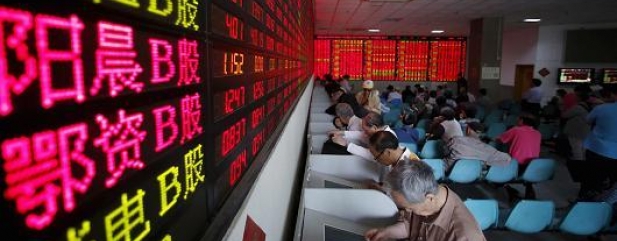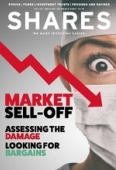Archived article
Please note that tax, investment, pension and ISA rules can change and the information and any views contained in this article may now be inaccurate.
Economic powerhouses must act fast to avoid meltdown

Stock markets around the world started to recover at the start of this week on expectations that the world’s central banks and governments would do whatever they could to prevent an economic meltdown.
According to Bloomberg data, markets have already priced in a significant policy response from the US Federal Reserve, with two interest rate cuts expected during March and two further cuts by the year end, which would take US rates to 0.5%. The first 50 basis point cut was confirmed on Tuesday (3 March).
The first hard evidence of the economic impact from the coronavirus epidemic was revealed on 29 February with the latest manufacturing Purchasing Managers’ Index (PMI) data from China.
The index plunged to 40.3 from 51.1 in January, indicating the sharpest deterioration since the survey began almost 16 years ago.
Analysts had been expecting a reading of 45. A number below 50 indicates a contraction in activity and the further below 50, the greater the contraction.
New orders received by Chinese manufacturers fell sharply with the rate of decline the biggest in the survey’s history. Export sales shrank amid constraints on production, shipping restrictions and order cancellations.
Staff shortages and production halts led to intense capacity pressures signalled by the fastest rate of backlog accumulation for almost 15 years. Chinese firms are anticipating the tough conditions to be temporary, as measured by the Future Output Index which rose to its highest level in five years.
Oil and copper prices reacted to the growing crisis well before last week’s dramatic fall in global shares, with the latter falling 12% between 20 December and 3 February before stabilising in response to factories and businesses slowly reopening. Copper is seen as a barometer of global growth due to its extensive use in many industries around the world.
Goldman Sachs believes that the world is facing the biggest commodity demand shock since the financial crisis with an estimated 4m barrels a day of lost oil demand compared with 5m barrels in 2008/9.
China’s economy is around 13 times bigger than it was during the SARS epidemic in 2003 and its slowdown will have a much greater impact on world growth.
The OECD has lowered its global growth forecast for 2020 by 0.5% to 2.4% and said its worse-case scenario ‘could push several economies into recession, including Japan and the euro area’.
US cargo ports are already feeling the effects of trade disruption with the Port of Long Beach, California reporting volumes down 6% in January and February compared to last year.
Important information:
These articles are provided by Shares magazine which is published by AJ Bell Media, a part of AJ Bell. Shares is not written by AJ Bell.
Shares is provided for your general information and use and is not a personal recommendation to invest. It is not intended to be relied upon by you in making or not making any investment decisions. The investments referred to in these articles will not be suitable for all investors. If in doubt please seek appropriate independent financial advice.
Investors acting on the information in these articles do so at their own risk and AJ Bell Media and its staff do not accept liability for losses suffered by investors as a result of their investment decisions.
 magazine
magazine









